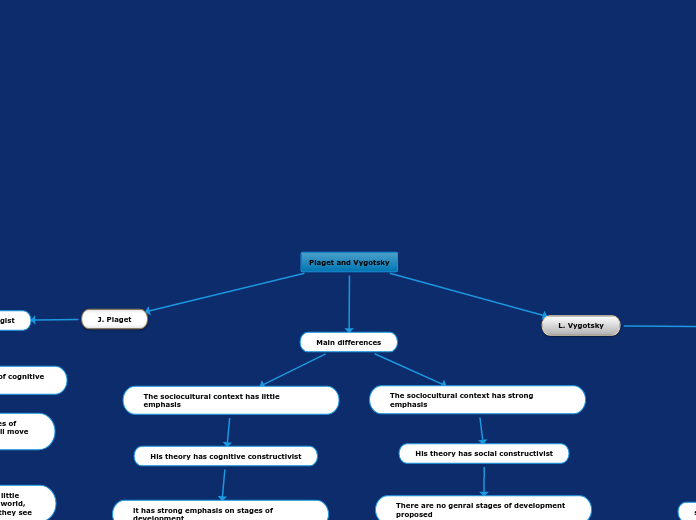Piaget and Vygotsky
Main differences
The sociocultural context has strong emphasis
His theory has social constructivist
There are no genral stages of development proposed
Establish opportunities for children to learn with the teacher and more skilled peers
The sociocultural context has little emphasis
His theory has cognitive constructivist
it has strong emphasis on stages of development
Support children to explore their world and discover knoledge
L. Vygotsky
He was a Russian psychologist
He is the author of the sociocultural theory
He suggested that children learned with other children, in a society, where there are some children with more knowledge who are going to help the ones who has less knowledge to get more
Zones of proximal develpment
Learning occurs in this stage, this is the distance between students who solve problems with guidance and the ones who solve them alone.
More knowledgeable other
A person with more knowledge than children, in this case the teacher.
social interaction
Children have to interact with their peers
J. Piaget
He was s Swiss psychologist
He is the author of the 4 stages of cognitive development
He suggested that there are 4 stages of mental development, and that we all move through theme, since we born
He believed that children were like little scientists, because the explore the world, and are curious with all the things they see
children added more new knowledge by their own interaction with the world
Formal operational stage: ages 12 and up
Concrete operational stage: ages 7 to 11
Preoperational stage: ages 2 to 7
Sensorimotor stage: birth to 2 years









